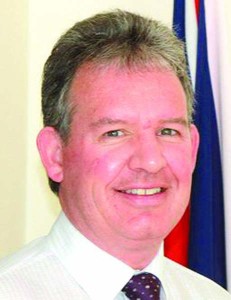
Andrew Ayre
European Union (EU) Ambassador Robert Kopecký and British High Commissioner Andrew Ayre have hailed late South African President Nelson Mandela as a great defender of human rights.
The diplomats, in an oped to mark Human Rights Day on Tuesday, said Mandela’s devotion to freedom and democracy, his forgiveness towards his former enemies, and his momentous achievements in bringing peace and reconciliation to his country made him an inspiration throughout the world.
In observance of the occasion, the EU high representative for foreign affairs and security policy, Catherine Ashton, issued a declaration on the EU’s strong commitment to promoting the protection of human rights.
Core values
The diplomats said, “Human rights are one of the core values of the European Union and its member states, and are considered to be the ‘silver thread’ which runs through all our policies. Indeed, the European Union was awarded the 2012 Nobel Peace Prize for its work on advancing human rights, peace, and reconciliation.
“The EU sees human rights as universal and indivisible and it actively promotes and defends them both within its borders and when engaging in relations with non-EU countries.
“The EU will continue to offer unwavering support for human rights and democracy and those who defend them, both in Guyana and in the wider world.”

Robert Kopecký
2013 marks the 20th anniversary of the 1993 World Conference on Human Rights in Vienna. The Vienna Declaration and Programme of Action confirmed the universality of all human rights and led to historic advances in their promotion and protection.
It continues to be a source of inspiration for the EU, which has human rights among its founding principles.
Action plan
The ambassadors said one year ago, the EU adopted its Strategic Framework and Action Plan on Human Rights and Democracy and appointed the first special representative for human rights. “Since then, we have focused on ensuring that human rights and democracy are mainstreamed throughout the EU’s external action.
“We have adopted new EU guidelines on freedom of religion or belief and on the enjoyment of human rights by lesbian, gay, bisexual, transgender and intersex (LGBTI) persons. We have continued our long-standing campaign to ban capital punishment throughout the world.”
In Guyana the EU, together with the UK and non-resident member states, works closely with civil society in promoting human rights through programmes such as the European Instrument for Democracy and Human Rights and the Non-State Actors programmes, where funding in excess of one million euro is being granted for human rights-related projects.



